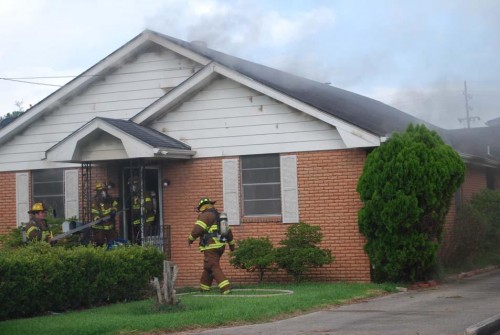David Crochet
July 14, 2009
Houma house fire kills 4 pets
July 16, 2009President Barack Obama is proposing a measure (“Financial Regulatory Reform”) that would allow the federal government to effectively control the banks in America, including the details of what every bank offers.
Under this law, every bank would be required to offer federally approved and required “standard financial products and services.” This means that every bank would offer precisely the same group of deposits and loans. Deviations from this would be watched so closely, and subject to such severe penalties that only the federally approved financial services and products will, as a practical matter, be offered.
This is a breathtaking grab of control of ordinary community banks in small towns across America.
There’s more.
In order to know what products the federal government should tell the banks to offer, the federal government will have an extensive marketing research department for banking products and services.
What in the world is the federal government going to do with a marketing research department for banking services?
There’s more.
The basic goal of all of this is so that the federal government can now be the “whiner in chief.”
Would you like some cheese with that whine? This, after all, is what many federal departments now do. They document complaints.
This is the primary goal of the proposed “Consumer Financial Protection Agency.” They will make sure that the whiners and complainers have a place to go. This way they can justify ever more federal intrusion into the lives of everyone.
This, by the way, is what the Labor Department has done to justify the proposed “card check” law. They have documented thousands of complaints and then they can demand that the federal government “do something” about all these “complaints.”
There’s more.
Banks would immediately be subject to FTC regulations. Up until now, banks have been subject to bank regulations. This means lots of bank regulators, lots of bank examinations, required external auditors and compliance officers.
Most banks also have internal auditors and more. In fact, major bank vendors are presently examined along with the banks. So FTC laws, including lawsuits attacking the banks, have thus far been inapplicable.
These new regulatory penalties will whip the banks into subjugation so that they will do precisely what the federal government says with regard to financial products and services. This is unprecedented.
There’s more.
These new bank regulators will not be under the compensation regime for most regulators. They will be under the compensation and salary standards of the Federal Reserve system.
In fact, protection of the salaries and benefits of the bureaucrats comprises around 10 percent of the new law.
How could the Obama administration possibly justify this?
It’s easy, just say that the “crisis” made me do it.
In the 88-page summary of the overall proposal, the Treasury Department uses the word “crisis” 89 times. That’s more than a crisis for every page. It is clear that this comes directly from Rahm Emanuel. The crisis was not fixed by the stimulus package, attacking AIG, passing the clunker bill, Cap and Trade, Card Check, outlawing hate crimes or improving the benefit packages of federal employees.
So, the Obama administration apparently believes we can fix the “crisis” by controlling every community bank in America.
This banking proposal, with the potential to control the economy in a sweeping and breathtaking way, is very important. All Americans should be concerned about this proposal.
Even more surprising is that, even without having a bill (and it is expected to be around 1,000 pages), Congress decided they could start holding hearings back on June 24. Two weeks later, President Obama revealed a portion of the bill, the Consumer Financial Protection Agency Act of 2009.
It does not yet have a bill number. It contains the provisions about “standard financial products and services,” the FTC provisions, and the bureaucrat protection measures.
There is a lot more that is very bad about the entire package, but you get the idea. If we are going to survive as a national free market economy, we cannot have the financial institutions operating on command and control orders from Washington.
This is not free market economics. This is not freedom.
This is government by whining and complaining.







